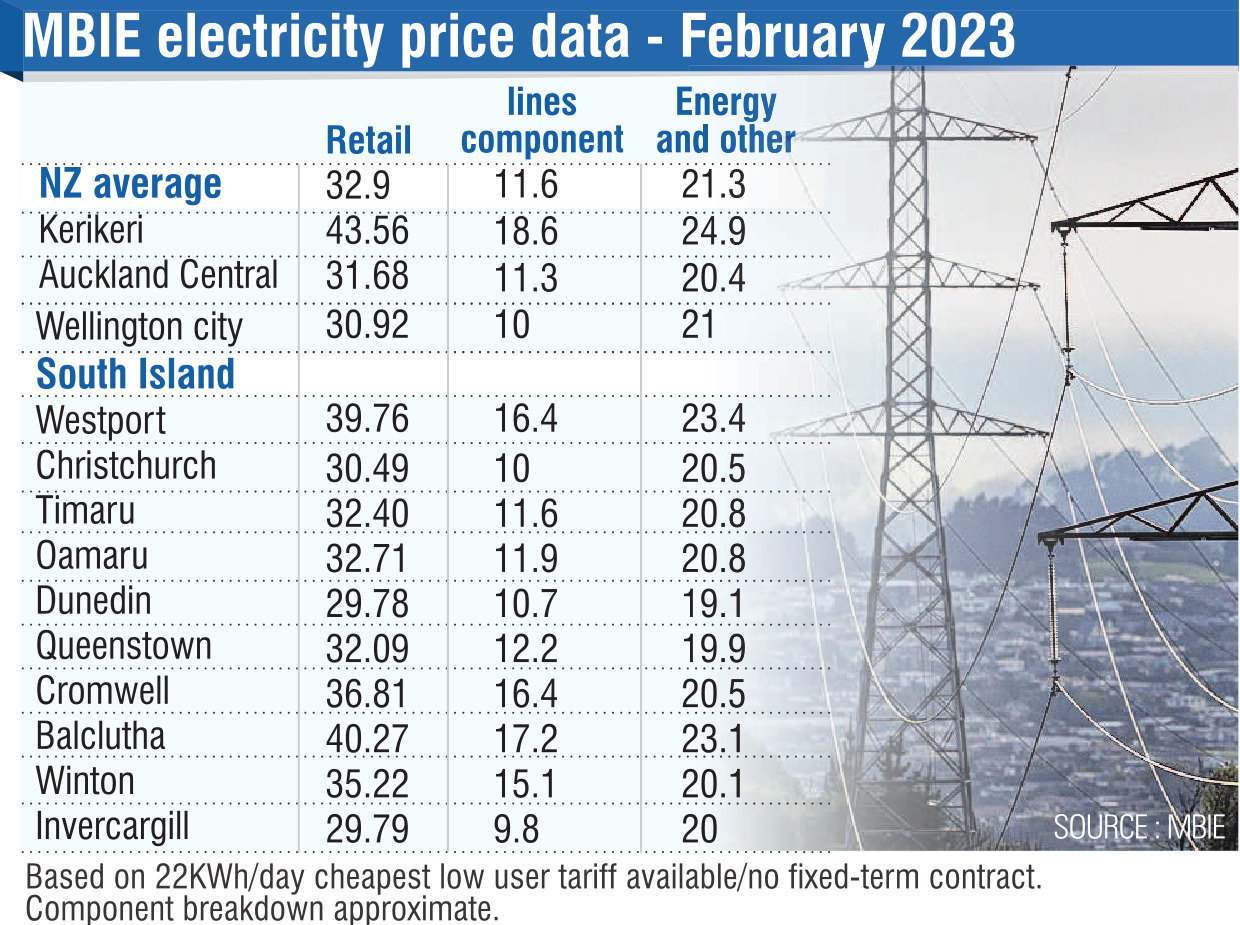
The latest figures from the Ministry of Business, Innovation and Employment (MBIE) show average prices for Balclutha households in the last quarter were 40.27c/kWh (cents per kilowatt hour), about 22% higher than the national average of 32.9.
Other centres in the South fared better, ranging from 28.79 in Ashburton and 29.78 in Dunedin, to 36.81 for Cromwell and 39.76 for Westport.
Central Auckland consumers were paying 31.68 on average, while Wellington paid 30.92, and Christchurch 30.49.
Clutha Mayor Bryan Cadogan said the disparities in pricing were manifestly unfair, and slammed the inequities as "disgusting".
"I think it’s disgusting that a nationwide network that should treat all households equally skews the equation to benefit some sectors over others.
"People have limited choice in winter other than to heat their homes as best they can. This equates to Clutha paying the highest average power bills in the country, despite living beside one of our nation’s largest hydro-electric generators [the Clutha River]."
Balclutha council housing resident Peter Ballantyne (78) said power bills could be a "massive" issue for those, such as pensioners, on lower incomes.
Mr Ballantyne, a former minister and volunteer budget adviser, said he had seen some "genuinely sad cases" of households unable to pay winter heating bills.
"It can be seen as difficult to change provider, and sometimes there’s mistrust of [utility] companies.

"This would be so much better than making people dependent on the [governmental] Winter Energy Payment, which can be demeaning for some people."
He said he had changed provider recently, to Flick, which had led to a 30% reduction in his power bills for his one-bedroom unit, where he lives alone.
"I budget about $35 a week now, which is more manageable on a pension."
MBIE markets, digital, data and insights manager Mike Hayward said price disparities could be caused by a range of factors, including retail competitiveness and population density.
The data for Balclutha had been averaged from 14 retailers, suggesting lack of competition was less likely to be a factor.
However, Clutha came under a line provider [OtagoNet Joint Venture] that served a relatively low number of households across a relatively large area.
In such situations, the line charge component of electricity costs could be greater, and was 48% higher than the national average for Balclutha in the latest data.
"Distribution companies in more densely populated areas can spread these lines charges over a greater number of customers, leading to lower charges per customer.
"The cost of transmission and distribution on local lines networks ... is often 30-40% of the final bill."
Mr Hayward said as the data was based on a fixed electricity consumption model, individual household costs could be expected to vary significantly.












